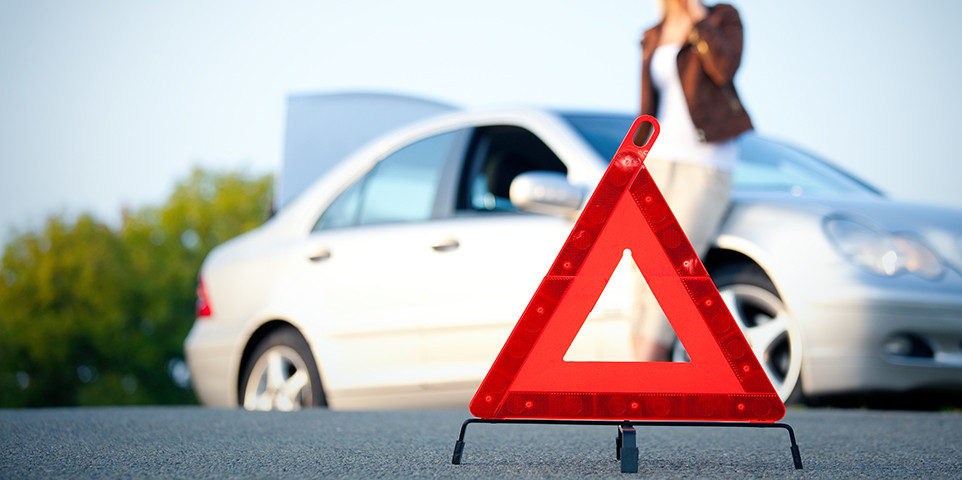Breaking down in the middle of Fort Worth, Texas, can be a stressful experience. From busy highways to unfamiliar streets, knowing what to do when your car stops working is crucial for your safety and peace of mind.
At Get Drivers Ed, we prioritize driver safety and preparedness. This guide will walk you through the essential steps to handle a car breakdown efficiently, ensuring you remain safe while minimizing disruption to your day.
1. Stay Calm and Assess the Situation
The first step during a car breakdown is to remain calm and evaluate your surroundings.
Immediate Actions to Take:
Turn on Hazard Lights: Activate your hazard lights immediately to alert other drivers.
Move to a Safe Location: If possible, steer your car to the side of the road or an emergency lane. Avoid staying in the middle of traffic.
Set Your Parking Brake: Ensure your vehicle is secure, especially on inclined roads.
Staying calm and taking quick action can prevent further accidents and ensure your safety.
2. Ensure Your Safety
Your safety and the safety of your passengers should be your top priority during a breakdown.
Steps to Stay Safe:
Exit the Vehicle Cautiously: If you need to leave the car, exit on the side away from traffic.
Stay Visible: Use reflective triangles or flares to make your vehicle more visible, especially at night or in poor weather.
Avoid Standing Near Traffic: Stay behind a guardrail or on a safe area away from moving vehicles.
At Get Drivers Ed, we emphasize the importance of safety during emergencies to ensure drivers are prepared for any situation.
3. Identify the Problem
Understanding what caused the breakdown can help you decide on the next steps.
Common Breakdown Issues:
Flat Tires: Check for visible damage or a deflated tire.
Engine Overheating: Look for steam coming from under the hood, often a sign of overheating.
Battery Failure: If your car won’t start or the lights are dim, it might be a dead battery.
Fuel Shortage: Ensure your fuel gauge isn’t empty; running out of gas is a common cause of breakdowns.
Having a basic understanding of your car’s issues can help you communicate effectively with roadside assistance or a mechanic.
4. Call for Help
If you cannot resolve the issue yourself, it’s time to call for professional assistance.
Who to Contact:
Roadside Assistance Services: Use services like AAA or your car manufacturer’s roadside assistance program for help with towing or repairs.
Local Towing Companies in Fort Worth: If you don’t have roadside assistance, contact a reliable local towing service.
Police or Highway Patrol: If your car is in a dangerous spot, notify local authorities to help secure the area.
Having the right contact information on hand can save you valuable time during an emergency.
5. Be Prepared with an Emergency Kit
A well-stocked emergency kit can make a significant difference when dealing with a breakdown.
Essential Items for Your Car Emergency Kit:
Jumper Cables: For reviving a dead battery.
Spare Tire and Tools: Ensure you have a functioning spare tire and the tools to change it.
First Aid Kit: For minor injuries or emergencies.
Reflective Triangles and Flares: To improve visibility and warn other drivers.
Water and Snacks: Useful if you’re stranded for an extended period.
Keeping an emergency kit in your vehicle is one of the key practices we encourage at Get Drivers Ed.
6. Prevent Future Breakdowns
While breakdowns can’t always be avoided, regular maintenance can reduce their likelihood.
Maintenance Tips:
Check Your Tires: Inspect tire pressure and tread regularly.
Test Your Battery: Have your battery tested to ensure it’s in good condition.
Monitor Fluid Levels: Keep an eye on oil, coolant, and brake fluids.
Schedule Regular Inspections: Visit a trusted mechanic for routine checkups.
At Get Drivers Ed, we provide courses that teach drivers about the importance of vehicle maintenance and how it impacts road safety.
7. Driving in Fort Worth: Unique Considerations
Fort Worth has its own driving challenges, and being aware of them can help you stay prepared.
Tips for Fort Worth Drivers:
Navigating Busy Highways: The city’s major highways, like I-35W and I-30, can be congested, so always stay alert and plan your routes.
Weather Conditions: Be cautious during severe weather, such as heavy rain or high winds, which can increase the risk of breakdowns.
Local Services: Familiarize yourself with nearby mechanics and gas stations, especially if you frequently drive in remote areas.
Understanding the unique driving environment in Fort Worth helps you stay one step ahead.
Conclusion: Stay Safe and Prepared with Get Drivers Ed
Experiencing a car breakdown in Fort Worth, Texas, can be a challenging situation, but with the right knowledge and preparation, you can handle it confidently. From staying safe and diagnosing the problem to calling for help and preventing future issues, every step you take can make a difference.
At Get Drivers Ed, we’re dedicated to empowering drivers with the skills and resources they need for every aspect of driving. Our online courses provide valuable insights into road safety, vehicle maintenance, and emergency preparedness.


